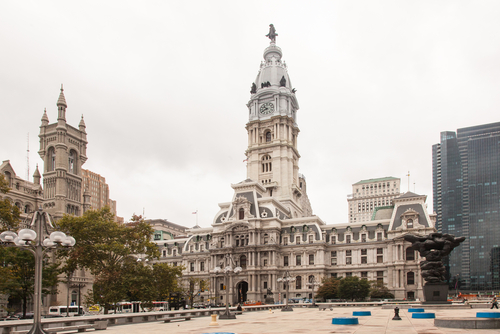
Established businesses in Pennsylvania received a welcome boost from the Trump administration’s corporate tax cuts, but there are additional steps state lawmakers could take that would increase the survival rate among start-up companies, representatives of the business community said at a Sept. 13 hearing before a state House committee.
Allowing Philadelphia to tweak its business tax code to allow companies to carry forward Net Operating Losses (NOL) for up to 20 years (the current cap is three years) would be an effective means for start-ups in the city to weather their losses as they look to gain traction following their launch, said David Taylor, president and CEO of the Pennsylvania Manufacturers’ Association.
Taylor told the House Majority Policy Committee hearing on improving the economic competitiveness of southeast Pennsylvania that the carry-forward ability was working well in other states and would no doubt help the Philadelphia area and the entire state nurture homegrown start-ups. “Some of them will succeed and become the major employers of the future,” said Taylor.
Taylor noted the three-year cap on the amount of losses that can be carried over to future tax years remained a thorn in the side of the business community and was among the business-climate issues “that can only be properly addressed in Harrisburg.”
“Pennsylvania has a low start-up rate for new businesses,” Taylor said. “The ability to apply those losses against profit is very critical.”
The legislature has already signaled that it was willing to take up the cause of NOL carryover. State Rep. Martina White (R-Philadelphia County) said earlier this month that she was seeking co-sponsors for a bill to approve Bill No. 180909, which Philadelphia passed in December, but requires the approval of the General Assembly. “It’s a heavy lift, but we have to get over it because it is affecting our competitiveness and our small-business start-up rates,” Taylor said.
Taxes play a key role in the overall attractiveness of greater Philadelphia as a venue for start-ups, both locally and among entrepreneurs from other areas, Taylor and other speakers said. Currently, Philadelphia may have solid educational infrastructure in life sciences and high technology, but its taxation profile is too high to lure companies from high-tax states such as California, New York and even neighboring New Jersey. It also makes the region vulnerable to poaching of not only businesses but also the recruitment key human talent by companies in states seen as more tax-friendly, such as the Carolinas and Texas.
“Let’s not give them any reason to leave the area,” said Matt Cabrey, executive director of Select Greater Philadelphia.
John Grady, president of the Philadelphia Industrial Development Corporation, said local governments could also assist growing companies by getting involved in the planning, financing, and actual construction of new buildings, particularly laboratory space for rapidly expanding life-science start-ups, that can be occupied in a matter of months rather than years.
“We should be thinking about using public resources to build these kinds of facilities,” Grady said, adding that companies outgrowing their current manufacturing plants, labs, and offices made them tempting targets for eager recruiters from other cities and states. “They are going to go where the space is,” he warned. “Being able to respond to the capital needs of these growing businesses is going to be important to their retention.”
A pro-business approach to local and state taxes could actually give Philadelphia a leg up on states with higher taxes, especially since the personal tax deduction for mortgage interest is about to be eliminated, conceivably making the cost of living a little higher in expensive competitor states such as New York and Massachusetts. Taylor said that scenario “could position Philadelphia as a low-cost alternative.”